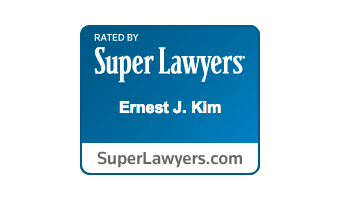Estate & Trust Litigation
Our overarching goal is to make sure that all of our clients – and their estates and trusts – stay out of court and avoid litigation. But there are times when preparing for litigation or going to court may be the only option:
- Breach of Trustee Duty
- Fraudulent Heirship Claims
- Unhappy Family Members/Beneficiary complaints
- Disinherited Family Members
- Inheritance Disputes
- Defending an Accounting
- Obtaining an Accounting from a Reluctant Trustee
- Auditing an Accounting
- Fixing a Botched Trust or Estate Plan
- Unsatisfied Beneficiaries
- Blended Family Situations
- Questions About Mental Capacity
- Forged Documents
- Will and Trust Contests
- Damages Caused by a Careless Trustee or Fiduciary
- Missing Assets
- Etc.
Trust and estate litigation is a highly specialized area of the law, requiring extensive knowledge of probate court procedures and trust law. If you are facing estate/trust litigation or believe you have grounds to sue on a trust or estate matter, you need an attorney who will advise you not only as to your rights, but also about your responsibilities and possible liabilities so you can make an informed decision about your case.
Our combined decades of experience will be at your disposal, and you’ll get answers grounded in law and common sense. We will provide you with our analysis of your case, and a recommendation for an efficient, cost effective solution. We have guided many of our clients to avoid costly litigation, while still achieving their goals. But in cases where litigation cannot be avoided, we provide full litigation services.
What many people don’t realize about probate and trust litigation until it’s too late, is that it is unlike a normal civil court litigation in many important ways. Some people have been involved in regular civil litigation, such as for a business dispute, or a car accident, or for money they were owed, etc., and they may already have experienced some of the uncertainties, expenses, and emotional tolls and burdens associated with going to court. They may believe that their past experiences in lawsuits has prepared them for a probate or trust litigation. But unlike a regular civil litigation, estate and trust litigation often ends up draining the very trust and probate estate of the very assets that the parties are fighting over, and this is a key distinction that we believe all sides should understand and consider carefully, before moving forward with a decision to litigate over a disputed issue involving a loved one’s estate or trust assets.
Another key difference between a typical civil lawsuit and a trust/probate litigation is that the party on the opposing side is usually a relative/family member rather than a stranger. “Winning” a civil lawsuit and getting compensated from a stranger who has rear-ended your car is generally a complete “win,” and civil litigation attorneys viewing the matter from the standpoint of “winning” a case may encourage proceeding forward with litigation, whereas our firm may not necessarily make that same recommendation. This is because the emotional toll of a trust/probate litigation requires the parties to carefully define what “winning” really means to them in this specific situation. Aside from the financial demands of litigation, the turmoil of an inheritance/estate dispute takes an emotional toll on all the parties. Too often, it also expands to take on a life of its own to involve the rest of the family, including parties who are not directly involved in litigating, but who may end up “picking a side” in the controversy, and the resulting family upheaval can affect family relationships across generations. In short, the family support system may not be there in a trust or estate litigation. The emotional tolls are greater and can do lasting damage in a family vs. family lawsuit in probate court than in any other kind of case, and we strongly encourage that parties to a potential probate/trust/inheritance related dispute should carefully consider what a “win” looks like and if it is really a “win” if it results in losing family connections that they may believe are more valuable than money.
Before litigating, we often recommend that all parties consider mediation efforts first because we have seen too many families “stuck” in cases they now can’t get out of, simply because they didn’t receive an honest and realistic explanation of the monetary as well as non-monetary costs before they started litigating. We have also been consulted for exit strategies on cases where a party decides that they simply can’t go on paying the financial and emotional costs, after months of litigation and thousands of dollars spent on fees.
Whenever possible, we encourage investing in non-litigation avenues to resolve disputes before turning to litigation, such as through family counseling, private mediation, or even holding family meetings to discuss possible resolutions. Most judges will have the parties go through court ordered mediation or settlement conferences anyway, after the litigation has already begun and after both sides have spent five to six figures in attorney’s fees.
We offer our services as private mediators, to give the parties an opportunity to discuss potential resolutions through an intermediary while avoiding confrontational situations. We can also help parties prepare for and participate in private Mediation with retired former probate judges. Mediation and a private resolution conducted by the parties, is the only true way to control both the outcome as well as the expense of resolving a disputed issue to keep more of the assets within the family. When asked the right questions, most families would prefer that someone within their own family get the money or assets of their loved one, rather than having it go to non-relatives in lawyers fees and even private fiduciary costs. We can ask the right questions to help you get to the right answers for your situation because we have seen so many litigated matters play out in the courts.





